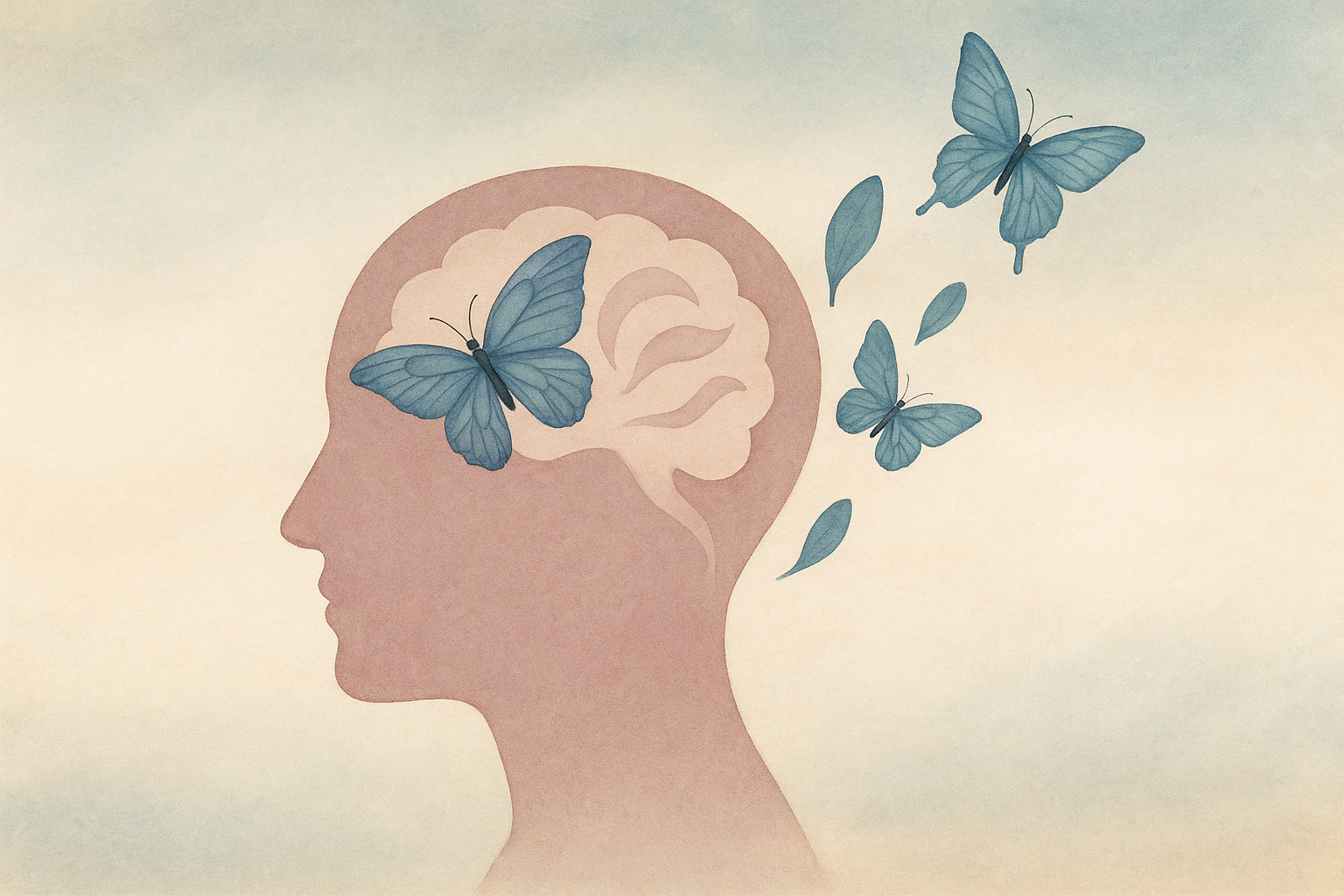Long-Term Mental Health Effects of Trauma + What Therapy Can Do
The Weight of Trauma and Its Lasting Impact
Trauma is something many people carry quietly, yet it leaves a powerful imprint on both the mind and body. Whether it stems from childhood experiences, racial or cultural trauma, ongoing stress, or difficult relationships, trauma can shape how you see yourself, others, and the world around you.
If you’ve ever wondered why certain memories, situations, or conflicts feel heavier than they “should,” you’re not alone. Trauma is more common than many realize, and it has a direct impact on mental health. Women, professionals, and BIPOC communities in particular often experience compounded stressors - juggling demanding careers, family responsibilities, and the weight of systemic or cultural pressures. Over time, these unhealed wounds can show up as anxiety, burnout, or a lingering sense of being “stuck.”
The good news? Healing is possible. By understanding how trauma affects the brain and body, and exploring how trauma-focused therapy works, you can take steps toward recovery, resilience, and peace.
How Trauma Impacts Mental Health
Trauma isn’t “just in your head.” It changes the way your brain, nervous system, and emotions function. Here’s how:
The Brain’s Response to Trauma
When something overwhelming happens, the brain goes into survival mode. The amygdala (the fear center) becomes hyperactive, constantly scanning for threats. Meanwhile, the prefrontal cortex (responsible for logic, planning, and calm decision-making) gets overridden. This means you might react strongly to small stressors or feel like your emotions are “taking over” without your permission.
The Nervous System and Trauma
The nervous system often stays on “high alert” long after the trauma has ended. You might feel jumpy, restless, or exhausted because your body is constantly preparing to fight, flee, or shut down. This chronic stress response can also take a toll on physical health, leading to headaches, muscle tension, stomach issues, or disrupted sleep.
Emotional and Relational Impact
Emotionally, trauma can make it difficult to feel safe - even with loved ones. You may notice patterns of shutting down, avoiding certain situations, or overworking to keep uncomfortable feelings at bay. Relational trauma, such as childhood neglect or racial microaggressions, can create deep wounds that influence how you trust, connect, and set boundaries with others.
When trauma remains unaddressed, daily life feels heavier. The effects of trauma can influence work performance, relationships, and even the ability to rest.
Common Signs and Symptoms of Trauma
Trauma looks different for everyone, but here are some of the most common ways it shows up:
Emotional symptoms: anxiety, irritability, mood swings, or feeling “numb.”
Physical symptoms: sleep problems, chronic fatigue, muscle tension, or stomach aches.
Cognitive symptoms: racing thoughts, trouble concentrating, or memory gaps.
Relational challenges: feeling disconnected, struggling with trust, or people-pleasing to avoid conflict.
Behavioral patterns: overworking, withdrawing socially, avoiding triggers, or using distractions to cope.
If you recognize yourself in these examples, you’re not broken and you’re certainly not alone. These are natural responses to overwhelming experiences. Many women and BIPOC professionals in Kirkland, Eastside communities, and across Washington State describe feeling stretched thin, caught between high expectations and the invisible weight of trauma.
Acknowledging these patterns is the first step toward healing.
How Therapy Can Help with Trauma Recovery
The effects of trauma can feel permanent, but with the right support, your brain and body can heal. Therapy offers a safe and structured space to untangle these patterns and rebuild a sense of safety, strength, and connection.
Trauma-Focused Therapies
Approaches like EMDR (Eye Movement Desensitization and Reprocessing), CBT (Cognitive Behavioral Therapy), and somatic or body-based methods are designed specifically for trauma recovery. These therapies don’t erase what happened - they help your nervous system process the memory differently so it no longer feels like it’s happening “right now.”
Benefits of Therapy for Trauma
Feeling Safe Again: Therapy creates a space where you can share your story without judgment and rebuild trust in yourself.
Regaining Control: Instead of being controlled by past triggers, you learn strategies to calm your nervous system and respond intentionally.
Building Resilience: Over time, therapy helps you reconnect with strengths, set healthy boundaries, and cultivate relationships that feel nourishing rather than draining.
Clients who engage in trauma therapy often describe feeling lighter, more present, and better able to handle daily stressors. What once felt overwhelming becomes manageable, and what once felt like “just surviving” transforms into living with purpose and clarity.
Local Support: Trauma Therapy in Kirkland and Washington State
If you’re located in Kirkland, the Eastside (East King County), or anywhere in Washington State, know that you don’t have to navigate this alone. Specialized trauma therapy is available right here in your community - whether through in-person sessions in Kirkland or secure online therapy statewide.
Healing is not about “fixing” yourself. It’s about reclaiming your time, your peace, and your energy from the effects of trauma. Therapy is not a sign of weakness. It’s an act of strength and self-care.
Taking the Next Step
Trauma may leave long-term effects, but it doesn’t have to define your life. Recovery is possible, and with the right support, you can move beyond surviving and step into a more grounded, empowered version of yourself.
If you’re ready to explore how trauma-focused therapy can help you heal, I’d love to walk alongside you. Together, we can create space for your story, build tools for resilience, and help you feel more present in your life.
Do you feel weighed down by stress, burnout, or the lingering impact of past trauma?
You don’t have to carry it alone. Therapy can give you the tools to release what’s been holding you back and help you feel more grounded, resilient, and at peace. Take the first step and schedule your free consultation by clicking the button below👇🏻
About the author
Angelica De Anda is a Licensed Mental Health Counselor and EMDR Certified therapist based in Washington State. Offering virtual therapy and in-person EMDR extended and EMDR intensives for individuals ready to move through trauma, burnout, and stress with deeper, faster results. Her work is grounded in cultural humility, compassion, and a belief in each client’s capacity to heal.



